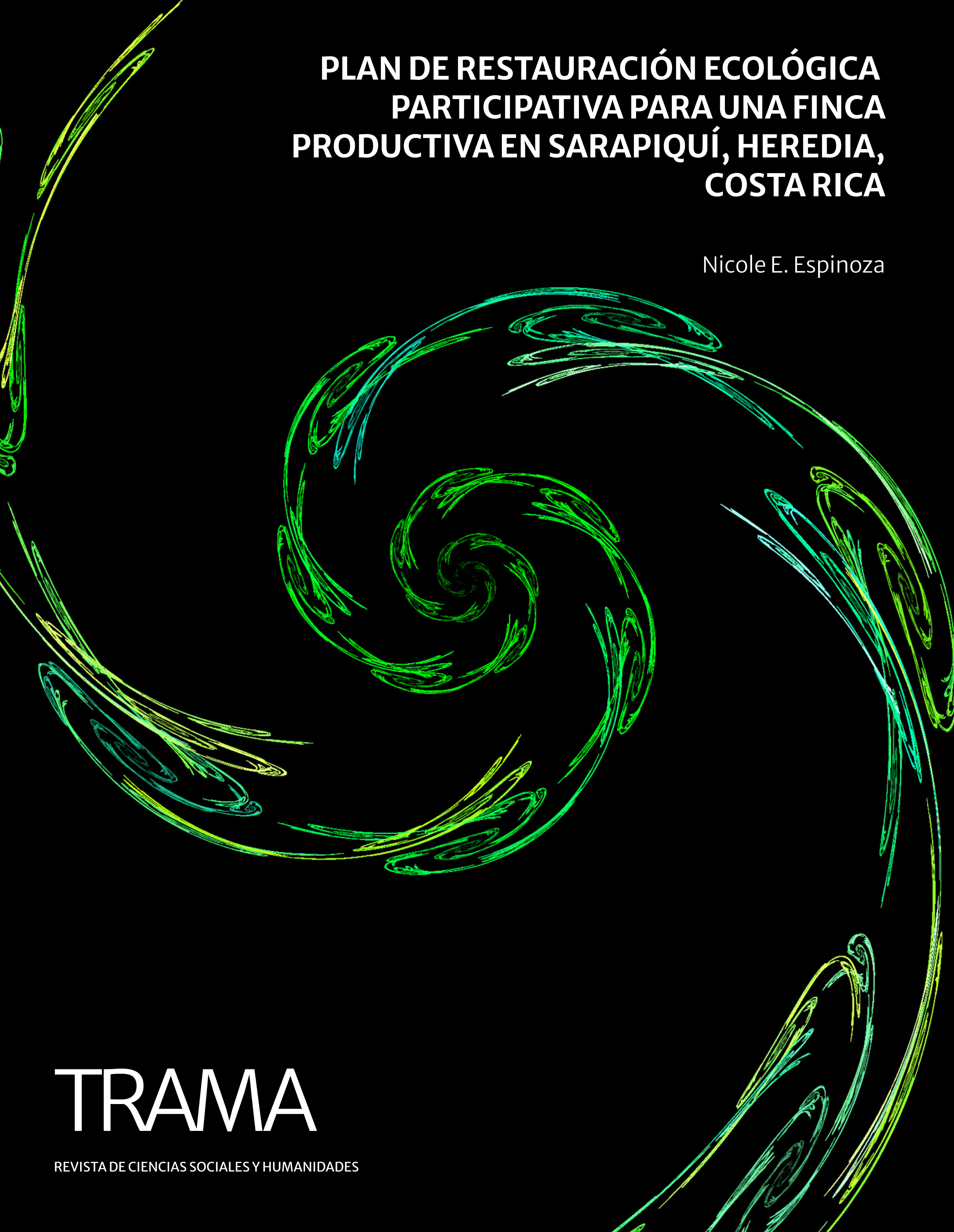Participatory ecological restoration in a productive farm in Sarapiquí, Heredia, Costa Rica
Main Article Content
Abstract
Abstract The environmental crisis faced by ecosystems and society is mainly the result of unsustainable practices of anthropogenic origin, such as deforestation and land usage changes; activities that cause the fragmentation of the landscape and therefore the isolation and loss of species. As a result of these problems, proposals for solutions or compensation for damaged or destroyed ecosystems have arisen, such as ecological restoration. On present days, the concept has evolved, orienting the principles of this practice to engage people or organizations in the restoration processes that are generated. As a result, the objective of this project was to propose a participatory ecological restoration plan for a productive farm in Sarapiquí, Heredia, Costa Rica. This plan was carried out together with the Asociación de Mujeres Proactivas de Sarapiquí (ASOMUPROSA) using Somarriba's methodology, Planificación Agroforestal de Fincas (2009) together with other participatory techniques. Through this methodology, sufficient biophysical, agroecological and socioeconomic data was obtained to develop two ecological restoration proposals, to which an adoptability index was applied in order to identify which proposal was more accepted by the association. Finally, it was shown that participatory ecological restoration represents a viable social, economic, and environmental model for the owners of productive farms, since the proposals are based on the needs and interests of the people.
Article Details

This work is licensed under a Creative Commons Attribution-NonCommercial-NoDerivatives 4.0 International License.

This work is licensed under a Creative Commons Attribution-NonCommercial-NoDerivs 3.0 Unported License.

